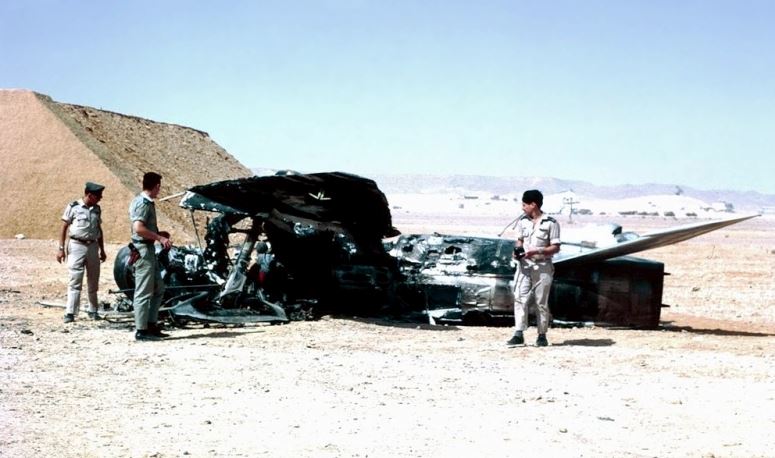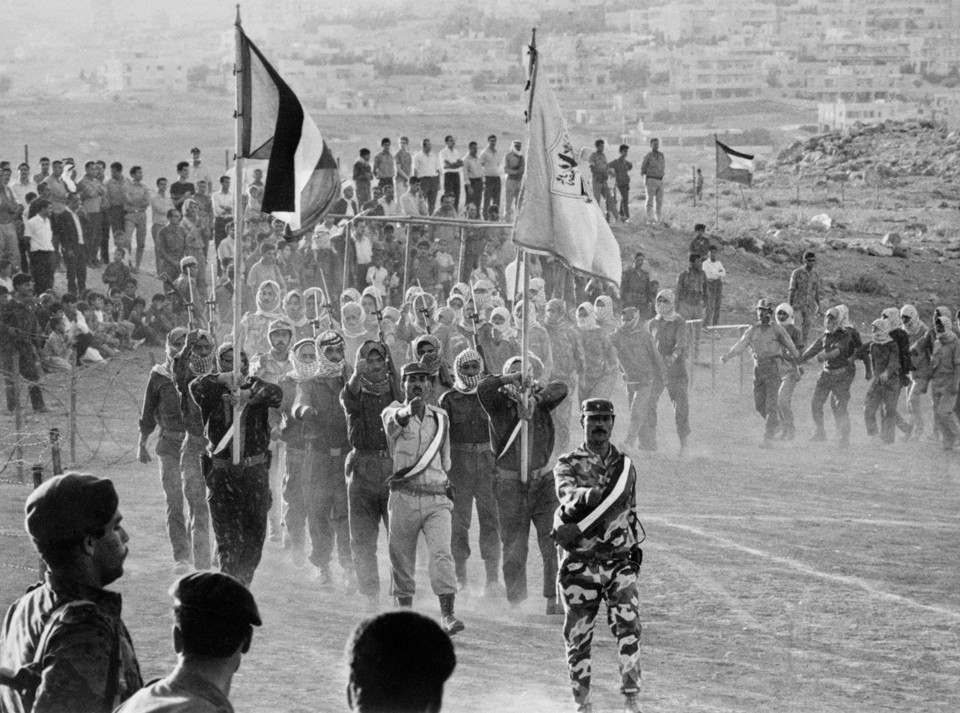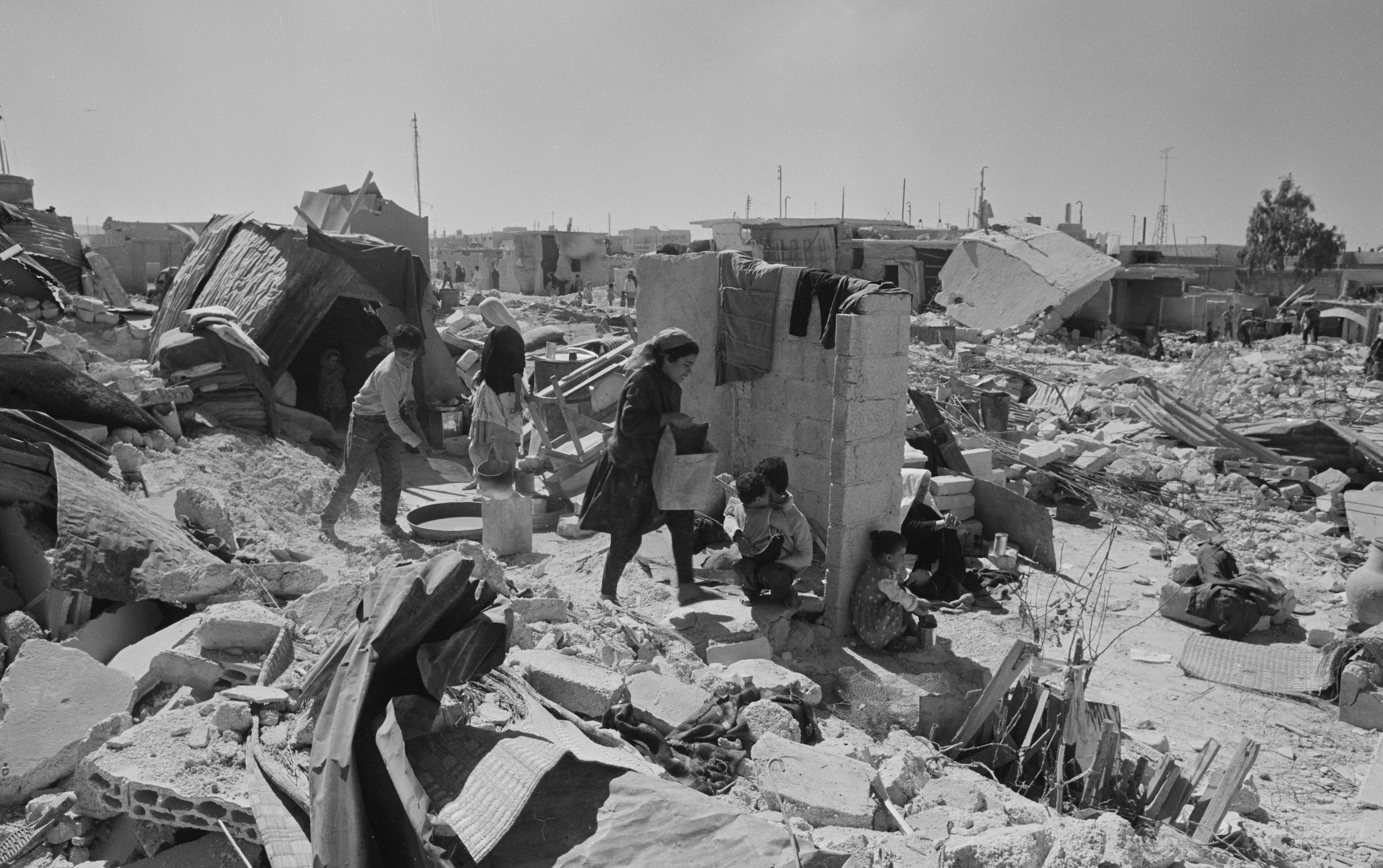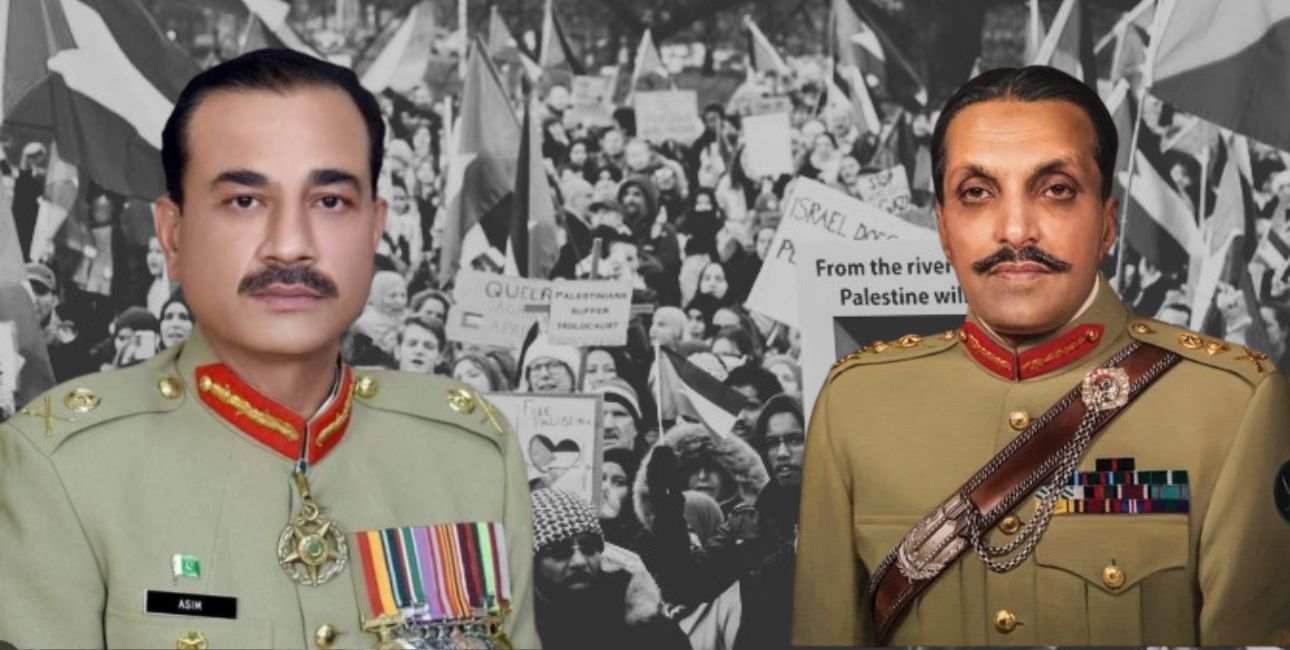25,000 Killed! How Pakistan Army-Led Jordan Killed More Palestinians In 11 Days Than “Israel Could Have In 20 Years”

Speculation is rife that Pakistan could soon sign the Abraham Accords, finally recognizing the state of Israel, more than 75 years after the Jewish state was created.
According to reports, Pakistan will drop its demand for Israel to withdraw to its pre-1967 borders for Islamabad to recognize the Israeli state.
Pakistan Army Chief, Field Marshal Asim Munir, will then mobilize the Islamic clergy in the country to propagate that Islamabad’s decision will help achieve a two-state solution for the Palestinian people.
Never mind if the Palestinian state, so achieved, is fragmented, and at least 50% smaller in terms of usable, contiguous territory compared to the undivided 1967 borders.
The first tangible sign that Pakistan is indeed moving towards signing the Abraham Accords and formally recognizing Israel came on September 29, when US President Donald Trump announced his new Gaza Peace Plan.
Speaking at a White House press briefing on Monday, Trump called the Pakistani leaders he met at the White House last week “incredible” and said Islamabad had been in support of his 20-point proposal aimed at ending the war between Israel and Hamas from the beginning.
“The Prime Minister and Field Marshal from Pakistan were with us from the beginning. They’re incredible. They just put out a statement that they fully believe in this pact. They backed this 100 per cent and are fully in support of this plan,” Trump said.
Shehbaz Sharif expressed his support for the Gaza plan on social media. “We welcome President Trump’s 20-point plan to ensure an end to the war in Gaza,” he wrote in a post on X. “I am also convinced that durable peace between the Palestinian people and Israel would be essential in bringing political stability and economic growth to the region.”
The statement by Pakistan PM Sharif is conspicuous for three reasons:
(1) High Praise for President Donald Trump.
(2) No mention of pre-1967 borders.
(3) Toning down of rhetoric against the Jewish state: Using the word “War” instead of “Genocide,” and using the word “Israel” instead of “Zionist Regime”.
The direct mention of Field Marshal Asim Munir by President Trump underscores the fact that the policy change towards Israel is driven directly by the Pakistan Army leadership.
Incidentally, Gen. Asim Munir is the first Army Chief in Pakistan who is also a “Hafiz” (a person who has memorized the entire Quran). However, notwithstanding his Islamic credentials, Gen Munir is willing to compromise on the Palestinian issue.
This makes Munir the second Islamist General in the Pakistan Army who has actively worked against the interests of the Palestinian people.
Earlier, Zia-ul-Haq, the General known for Islamicizing the Pakistan Army, had gone on an offensive against the Palestinian people in Jordan and massacred over 25,000 of them, an incident remembered as “Black September” in History.
Black September: When Zia-ul-Haq Led The Massacre Of Palestinians
In his book ‘The Duel: Pakistan on the Flight Path of American Power,’ British-Pakistani writer Tariq Ali refers to a quote by Moshe Dayan, the legendary Israeli military commander and former Defense Minister, who said that in Black September, King Hussein (of Jordan), “killed more Palestinians in 11 days than Israel could kill in 20 years”.
Incidentally, according to many reports, it was former Pakistani dictator General Zia-ul-Haq, Brigadier Zia at that time, who led the counter-attack of the Jordanian Army on Palestinian refugees and militants, which resulted in the death of 25,000 to 30,000 Palestinians in 1970.
However, to understand what led to Black September, one has to go back to the Six-Day War in 1967.

During the Six-Day War in 1967, Israel defeated the combined armies of Egypt, Syria, and Jordan, and occupied the Sinai Peninsula (Egypt), the Gaza Strip, the West Bank, East Jerusalem, and the Golan Heights (Syria).
This led to millions of Palestinians fleeing to Jordan.
In 1970, under the “Rogers Plan,” Israel and Egypt agreed to establish peace and exchange territory. This led to further disappointment in Palestinian refugees, who feared that Arab states were incapable of fighting Israel and they can reach a settlement with Israel, ignoring the rights and interests of the Palestinian refugees.
This convinced Palestinian refugees in Jordan that they would have to take matters into their own hands. Simultaneously, radicalised militant groups such as the Palestine Liberation Organisation (PLO) and Yasser Arafat’s Fatah were gaining popularity among the Palestinian refugees.
King Hussein (of Jordan) was one of the primary targets of the protests by the Palestinian refugees as he started cracking down on these militant groups active in Jordan, seeing them as a challenge to his authority.
Clashes started between the Jordanian Army and Palestinian groups in September 1970.

Next, the Palestinian groups hijacked three flights – TWA Flight 741, Swiss Air 100, and Pan-American Flight 93. Two flights were flown into Dawson’s Field, a desert airstrip in Jordan. The third plane was flown into Cairo and was blown up “under the noses of the Egyptian army”.
On September 9, the fourth flight was hijacked. By September 15, the rebel Palestinian groups had captured the city of Irbid and declared it a “liberated zone”.
The Syrian Army and a small unit of the Iraqi Army in Jordan also joined the Palestinian rebels.
On September 17, 1970, King Hussein ordered the Jordanian Army to target militants operating from the refugee camps around Amman.
On September 18, Syrian tanks entered Jordan in support of the Palestinian militants near the town of Irbid, which Palestinian militants had captured.
At this point, King Hussein asked Brigadier Zia-ul-Haq to travel to Irbid and assess the situation. Zia-ul-Haq was in Jordan following the defeat of Jordan in the Six-Day War in 1967. The Pakistan Army was assisting in the rebuilding and training of the Jordanian Army.
Bruce Riedel, a former CIA officer, wrote an article on 50 years of Black September for the CIA website.
Riedel wrote, “Hussein sent Zia-ul-Haq to the scene to make an on-the-ground assessment of the situation. Zia reported that the situation was serious but not dire. Jordan could handle the Syrian tanks with its own forces and prevail. Zia effectively took charge of part of the Jordanian counterattack…”
It was in this counter-attack, planned and led by Zia, that thousands of Palestinians were killed. Arafat claimed the Jordanian Army’s operation in Black September killed up to 25,000 people.

The Palestinian rebel groups received no support from either Syria or the Iraqi military. They had no armored vehicles, no air support, and were facing a professional army with overwhelming assault power.
Political scientist William B Quandt, in his book The Politics of the Palestinian Nationalism (1973), writes that “the lack of both heavy armour and air power contributed to the defeat of the fedayeen at the hands of the Jordanian army”.
For his role in Operation “Black September,” Zia was even called the ‘butcher’ of Palestinians. However, over the years, many Pakistanis have tried to minimise the role played by Zia in the massacre of Palestinians.
Writing in The News International in August 2010, Tayyab Siddiqui emphasized that the Pakistani military’s mandate was to train the Jordanian defense forces and did not involve combat.
Siddiqui, who was chargé d’affaires of the Pakistani embassy in Jordan at the time, wrote, “… I received a call from Brig Zia, informing me that the king had asked him to take over the command of the 3rd Armoured Division stationed in Irbid, a town close to the Syrian border. Syria had moved with an armoured brigade into Jordan.”
He added that Zia took command in Irbid, but the Syrians withdrew under pressure from the US and Israel before any combat operation. “This was the sum total of Pakistan’s involvement or Zia’s role in the alleged massacre of the Palestinians,” Siddiqui wrote.
However, even Siddiqui acknowledged that Zia took command of the 3rd Armoured Division in Irbid, and it remains a fact that thousands of Palestinians were killed in the final assault.
Zia-ul-Haq would go on to become the army chief of Pakistan and, after ousting the civilian government in a military coup in 1977, introduce Islamic Shariat laws.
Writing in the Pakistani newspaper The Express Tribune, Pakistani social scientist and author Raza Naeem said, “Even a then-obscure Pakistani Brigadier bearing the uplifting name of Zia-ul-Haq performed yeoman’s service for King Hussein by blatantly violating the terms of his secondment to the Jordanian army by taking part in the massacre – undoubtedly valuable match practice for what he was to wreak in his native country just seven years later as its worst military dictator.”
“Zia-ul-Haq was sent to Jordan in 1967, where he stayed for three years. He trained Jordanian soldiers and led the operation known as Black September, a very regrettable action against Palestinians in Jordan,” veteran Pakistani journalist and writer Shaikh Aziz wrote in 2013 in Pakistani newspaper ‘The Dawn’.
“The estimated number of Palestinians killed in this action is believed to be anywhere from 2,000 to 25,000, depending on the source. It is, however, certain that their (Palestinian) forces were thoroughly routed. Thanks to his role in this action, Zia-Ul-Haq, a Brigadier at that time, came to be remembered as the Palestinian killer in his own country,” Aziz added.
“The king emerged from the greatest challenge to his throne almost entirely because of his own smart decisions, his excellent intelligence service, and the loyalty of the army. A helping hand can be attributed to Zia. Luck played its part as well,” wrote Riedel.

Munir & Zia: The Islamist Generals
Ironically, the two most Islamist Generals in the Pakistan Army might be remembered for the greatest betrayal of the Palestinian cause.
Incidentally, it was none other than Gen. Zia who opened the doors of the Pakistan Army for Munir.
Initially, the Pakistan Army did not recruit students from madrassas. However, Zia allowed government departments and the Armed Forces to recruit madrasa graduates.
This opened the doors of the Pakistan military for Munir, who got his primary education in an Islamic seminary.
Munir is also known to adore Gen Muhammad Zia-ul-Haq and model himself after him.
Indeed, Munir is the first Pakistani general who is also an Hafiz and has memorized the entire Quran.
However, history might remember these two Islamist Pakistani generals as the greatest betrayers of the Palestinian cause.
- Questions and Answers
- Opinion
- Motivational and Inspiring Story
- Technology
- Live and Let live
- Focus
- Geopolitics
- Military-Arms/Equipment
- الحماية
- Economy
- Beasts of Nations
- Machine Tools-The “Mother Industry”
- Art
- Causes
- Crafts
- Dance
- Drinks
- Film/Movie
- Fitness
- Food
- الألعاب
- Gardening
- Health
- الرئيسية
- Literature
- Music
- Networking
- أخرى
- Party
- Religion
- Shopping
- Sports
- Theater
- Health and Wellness
- News
- Culture

